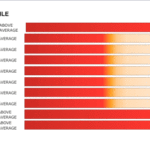Most of us have had to endure some of the extremes of management dogma throughout our careers, and most of us submit to some form of performance management at work. If you ever suspected that some of hoops you were made to jump through were unnecessary, unhelpful or unfair, then you might want to make Jeffrey Pfeffer your pin up boy. Jeffrey Pfeffer is a Professor of Organisational Behaviour and Human Resource Management at Stanford University in the USA. He has been visiting Professor at some of the most celebrated business schools such as Harvard, London and Singapore. In March this year he provided testimony to the US House of Representatives on the management of the US Government workforce. What he said about management is based on evidence, and it may surprise you. Below I present some of the key myths he identified in his testimony (his full testimony is available at http://www.evidence-basedmanagement.com/research_practice/commentary/pfeffer_congressional_testimony_08mar2007.pdf).
1. Equity ownership by management improves company financial performance.
There have been lots of examples of apparent corporate excess involving senior managers cashing in or being rewarded with large numbers of shares in the companies they manage. The usual explanation for this is that it improves company performance. However Pfefer maintains there is little or no evidence to support the practice, he writes :“More than 200 studies on the effects of senior management equity ownership on company financial performance finds no effect” (pp6).
2. Downsizing improves company performance by delivering greater flexibility.
Flexibility is the watchword of modern organisations. Understandably in a globalized competitive market, being able to adapt to meet continually changing and unpredictable demands is important, and having a flexible workforce is likely to be a key element in the flexibility recipe. However, the “lean and mean” philosophy of reducing the workforce through downsizing is apparently not the way to go according to Pfeffer: “systematic reviews of the evidence find little positive effect from downsizings and, instead, much evidence of problems and various adverse consequences. There is, as reviewed by Wayne Cascio, no evidence that corporate downsizings increase productivity or stock price, reduce costs, stimulate innovation, or make organizations more successful. Nonetheless, such activities persist, providing yet another example of a widespread management practice that is apparently growing in prominence in spite of, not because of, the evidence for its effectiveness.” Pp7
3. Individuals create performance
This seems an almost self-evident truth and not a likely candidate for myth status. It is certainly true that individuals create individual performance, but nearly all work tasks are inter-connected and inter-dependent, results rarely come from a person working in isolation, but rather they are due to the diffuse and complex interaction of people working together within a bigger system. Performance emerges due to strategy, clear objectives, training, career development practices, social and technical support. Systems create performance not individuals. Pfeffer cites Toyota as an example of a successful company that has succeeded in spite of not having individual pay for performance in its factories or large financial rewards for its executives.
4. We can measure individual performance reliably.
Most work tasks are complex and interdependent on the performance of others. Most performance measures are subjective and Pfeffer cites research that shows that those who conduct the performance appraisals systematically rate higher people they personally hired than those they inherited when they assumed the position. This is because the managers were more psychologically committed to their hires compared to the staff they inherited. How often have you seen the “dream team” who were brought in by the boss and seemingly can do no wrong?
5. Creating wide differences between the best and worst paid in organizations is motivational and improves organisational effectiveness. This is a line that many consultancies push, with motherhood statements about rewarding success allied to instilling fear that if you do not, you’ll lose your precious talent. However, an inspection of the evidence suggests this is not correct. Over to Pfeffer: “In even individualistic settings such as baseball teams and university faculties, the evidence is that the greater the dispersion in individual pay, the lower the performance. In less individualistic settings with even higher levels of task-related interdependence, such as companies, the evidence is that greater pay dispersion is also associated with diminished quality and financial performance.” Pp12
Pfeffer’s general point is that much that is done in the name of management is based on nothing more than “casual benchmarking” (uncritically copying competitors management practices) or simply following fashion. He compares it to the attachment in medicine some time back to the practice of blood-letting. If we can encourage more managers to adopt evidence-based practices, it could lead to better management, better career development, and more financially successful organizations, and who is going to object to that?
Jim Bright is Professor of Career Education and Development at ACU National and a Partner at Bright and Associates, a Career Management Consultancy.
Related Posts








